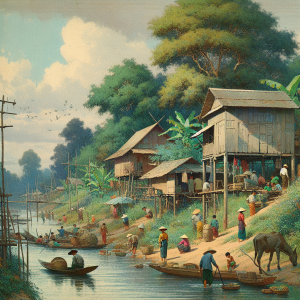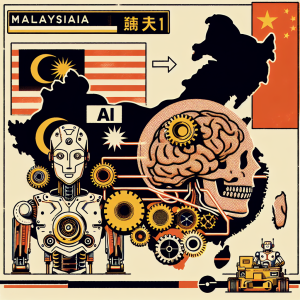China has escalated its trade tensions with the United States by imposing a staggering 125% tariff on a range of American goods. This move, described by Chinese officials as a response to what they term the "bully" tactics of the US, has reignited fears of a prolonged economic confrontation between the world’s two largest economies. The Chinese government has called for the US to end its "destructive behaviour," raising questions about the future of international trade relations.
The new tariffs, which target a variety of sectors including agriculture and technology, signal a significant shift in China’s trade policy. Analysts suggest that this could further strain supply chains already disrupted by previous tariffs and the ongoing geopolitical tensions. The US has been a major trading partner for China, and this latest escalation could lead to retaliatory measures that may impact global markets. As both nations dig in their heels, the potential for an extended trade war looms large, with implications that could ripple through economies worldwide.
Impact on Singapore’s Economy
For Singapore, the ramifications of this trade dispute are particularly pronounced. As a key trading hub in Southeast Asia, Singapore has maintained a robust relationship with China, which has been its largest trading partner since 2013. The city-state’s economy, characterized by its openness and innovation, is heavily reliant on trade and foreign investment. With the Port of Singapore being one of the busiest in the world, any disruption in US-China trade could significantly affect Singapore’s economic stability.
The Singaporean government has consistently emphasized the importance of regional stability and economic cooperation. In light of the escalating tariffs, Singapore may find itself in a challenging position, needing to balance its strong ties with both China and the US. The government’s pragmatic approach, which combines free-market principles with social welfare policies, will be crucial in navigating these turbulent waters.
Looking Ahead
As the situation evolves, Singapore’s policymakers will likely be closely monitoring the developments in US-China relations. The nation’s diversified economy, with key sectors including financial services, manufacturing, and semiconductors, positions it well to adapt to changing global dynamics. However, the challenges of high living costs and reliance on foreign labor remain pressing issues that could be exacerbated by the ongoing trade tensions.
In conclusion, the latest tariffs imposed by China on US goods signify a critical juncture in international trade. For Singapore, the implications are profound, highlighting the need for strategic adaptability in a rapidly changing economic landscape. As the city-state continues to play a pivotal role in the region, its ability to foster economic resilience will be tested in the face of escalating geopolitical challenges.





